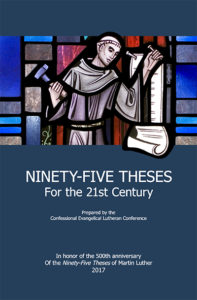
In the Nicene Creed, English worshippers encounter the word incarnate: “For us and our salvation, he came down from heaven, was incarnate of the Holy Spirit and the Virgin Mary, and became truly human.”
This word “incarnate” (also seen in the Spanish encarnó) reflects the Latin translation (incarnatus est) of the original Greek of the Creed (σαρκωθέντα). “Incarnate” means “enfleshed” or “in human form”—from the Latin in carne, which means “in the flesh.” Of course, this statement in the Creed echoes John 1:14: “The Word became flesh (σὰρξ ἐγένετο) and dwelt among us.”
Here is the mystery and marvel of Christmas! At Christmas, we celebrate how Jesus, the Second Person of the Triune God, took on a full human nature, so that ever afterward he is both true God and true man. Christmas can be called the “Festival of the Incarnation.”
The implications are enormous! Think of how important we as human beings must be in the eyes of God, if he—as the almighty creator and Lord of the entire universe—was willing to take on human flesh and become one of us. God loves the human race so much he decided to become our brother.
But we also know the final purpose of this incarnation—the forgiveness of sins and reconciliation with God. Here is what confessional Lutheran churches teach according to Augsburg Confession, Article III:
They teach that the Word, that is, the Son of God, took upon himself human nature in the womb of the blessed Virgin Mary so that there might be two natures, divine and human, inseparably conjoined in the unity of one person, one Christ, truly God and truly a human, being “born of the Virgin Mary,” who truly “suffered, was crucified, died, and was buried” that he might reconcile the Father to us and be a sacrifice not only for original guilt but also for all actual sins of human beings.
By becoming incarnate, Jesus was able to fulfill God’s law as our substitute and to die on the cross to pay for sin. Jesus became a human so that we could be reconciled to the Father.
May you and your church rejoice in these truths again in this special season. Christmas is not just a birthday party for Jesus. Christmas is when we ponder the mystery of the incarnation upon which our eternal salvation depends.
Thomas P. Nass, CELC President
P.S. The work of the international CELC continues behind the scenes. The Global Theological Education Commission is planning an online conference for theological educators on February 1-3, 2024. The CELC Planning Committee is starting to make plans for the international convention in Zambia in 2026. Please share a report if you have news from your church, or if you are having a CELC regional meeting in 2024.
